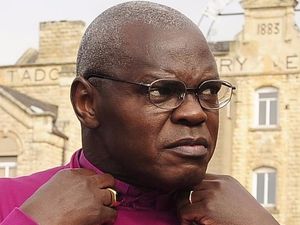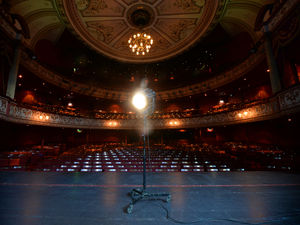Marketing men must be licking their lips
If you weren’t aware that chocolate-maker Cadbury and the National Trust hold egg hunts over the Bank Holiday weekend before, you probably are now.

Because – choc horror – they have eliminated Easter.
The fact that the Prime Minister Theresa May, among many others, took the time to condemn these two great British institutions more or less guaranteed them big headlines.
Mrs May said: ‘I’m not just a vicar’s daughter – I’m a member of the National Trust as well. I think the stance they have taken is absolutely ridiculous.
‘I don’t know what they are thinking about frankly. Easter’s a very important festival for the Christian faith for millions across the world.’
On the face of it, eliminating Easter seems like an award-winning, 24-carat gold, fur-lined, diamond-encrusted Faberge egg of a public relations disaster. But thanks to the furore it’s caused, the decision may well end up doing the two organisations more good than harm.
Naturally both Cadbury’s American-owned company Mondelez – formerly the cheese-maker Kraft – and National Trust, custodian of many of the nation’s greatest treasures, deny they have eliminated Easter from their egg-hunt PR campaign. And it’s true, if you look at much of the publicity promoting the hunts at 300 National Trust properties across the country, Easter does get a mention.
That’s partly because Cadbury’s geeks seem to have been scurrying around adding the word Easter to its website at every opportunity.
Yet before Cadbury found itself at the centre of all this excitement, a spokesman did say: ‘We invite people from all faiths and none to enjoy our seasonal treats.’ And the events were prominently promoted as ‘Cadbury’s Great British Egg Hunt’. This is even more offensive to Christians than the time Birmingham City Council was accused of ‘cancelling Christmas’. Towards the end of the 1990s, the city promoted ‘Winterval’ instead because it lasted longer and was more inclusive than boring old Xmas.
No doubt both Mondelez and the National Trust were keen to be just as right-on when it came to promoting their ‘seasonal treats’ over the forthcoming Bank Holiday. Easter is, after all, the most fundamental event in the Christian calendar. Even the eggs we give each other have a religious significance because, traditionally, people saved them up during Holy Week and gave them to children at Easter.
The Victorians, led by the Quaker chocolate-makers Fry, Rowntree and, of course, Bournville’s Cadbury, adapted the tradition. That’s no doubt why one of the biggest critics of this snub to Christianity, Archbishop of York John Sentamu, says the company is guilty of ‘spitting on the grave’ of the company’s founder John Cadbury.
Defenders of eliminating Easter say this is just a storm in an egg-cup arguing there’s nothing wrong with Cadbury and the National Trust trying to be inclusive now the hunting season is upon us. That may be true and for Cadbury the aim is simply to sell more product. The National Trust, however, has a more important role to play. It is the guardian of our history, culture and traditions. The nation puts its trust in this owner of 775 miles of coastline and 1,000 square acres of land not to mention all the precious buildings in its care.
Unfortunately the organisation, which employs 10,000 people and survives thanks to the help of 61,000 volunteers, is embarrassed by its image. Visit a National Trust property any weekend and you will soon recognise its ‘problem’. The visitors, the members, the people paying high prices for tat and plants, are almost exclusively middle-aged or elderly. Worse still, they are quite likely to be, in the words of BBC boss Greg Dyke, ‘hideously white’.
For an inclusive, go-ahead organisation the demographic profile of its 4.2 million members is as shameful as it is for the BBC itself.
Both institutions have set themselves up as arbiters of what is, and is not, politically correct and are determined to ram their views down our throats. In the case of former civil servant Dame Helen Ghosh, boss of the National Trust, that means dumbing down on a grand scale – describing priceless furniture as ‘stuff’, filling 1820s drawing rooms with bean bags, ploughing cycle tracks through Capability Brown landscapes and, of course, campaigning against global warming.
These days, the Trust isn’t interested in preserving posh houses for posh people; it’s much keener to get its hands on Britain’s 20th century industrial heritage instead – more working class, wider appeal, not snobbish Downton Abbey; blue collar not black tie.
Just like the BBC, the National Trust seems to despise its greatest supporters, the people who are interested in history and heritage, landscapes and seascapes, paintings and planting.
So it comes as no surprise to find the organisation conniving with Cadbury over the decision to drop the word Easter. It’s not too late to buy an egg from the Meaningful Chocolate Company and boycott National Trust properties – at least next Friday, when they should all be closed anyway, if not for good.




